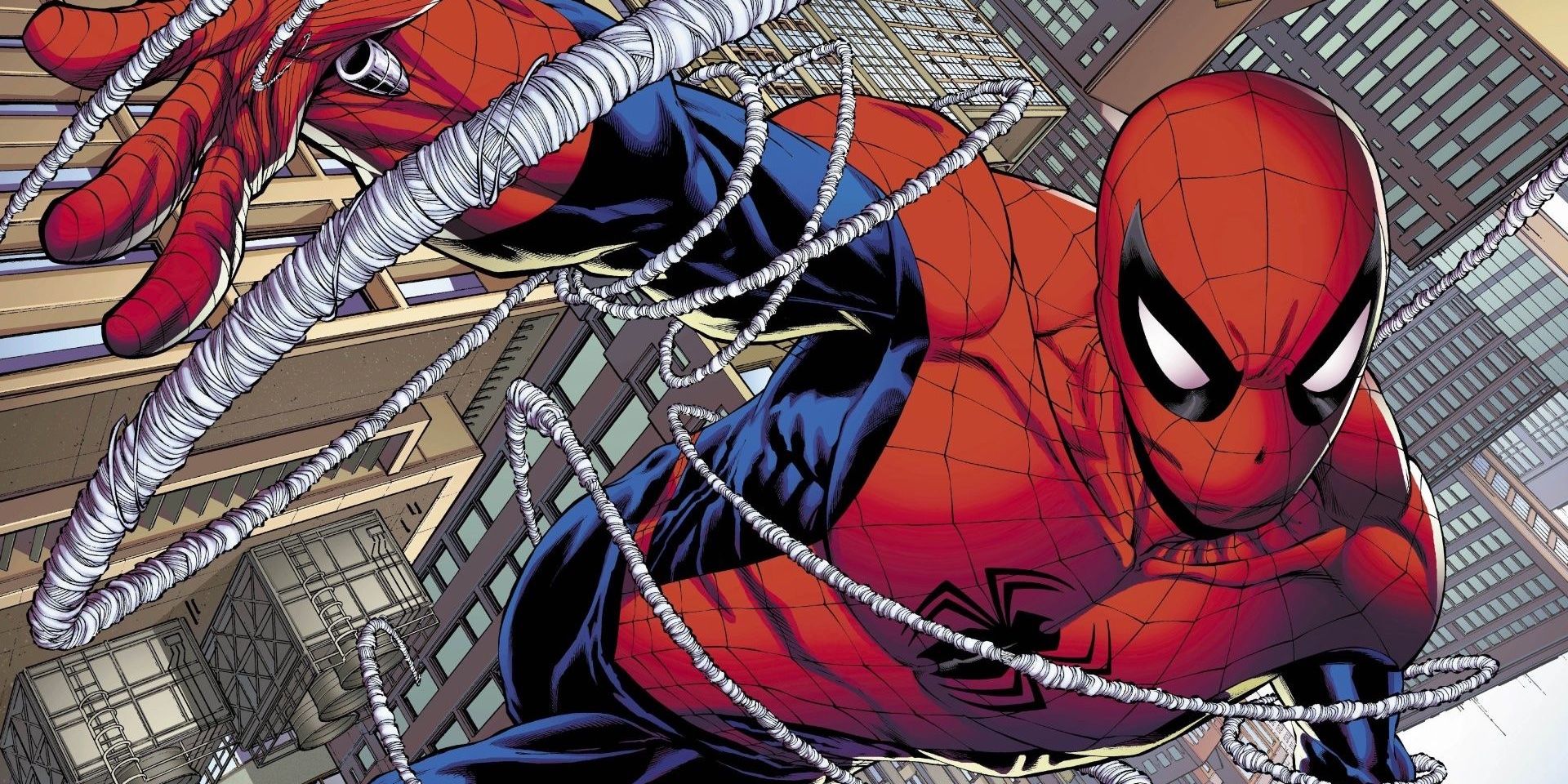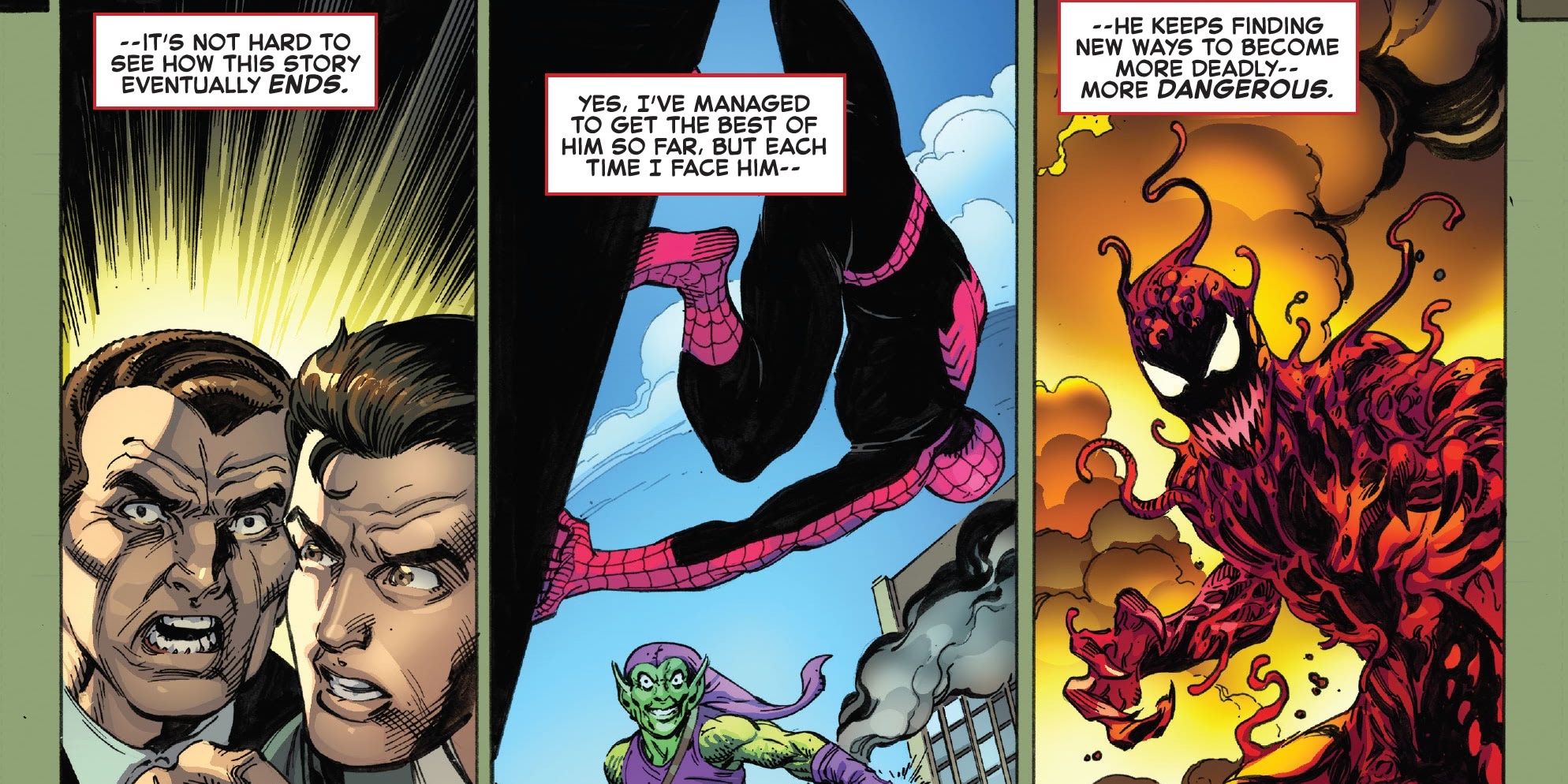Warning! Spoilers ahead for The Amazing Spider-Man #48
The Amazing Spider-Man has always been characterized by the motto his Uncle Ben gave him before he died: "With great power, there must also come great responsibility." Peter Parker has internalized those words ever since, using his spider powers to help whoever he can with the powers he's been gifted with. However, is it possible Peter's sense of responsibility could go too far, especially if it causes more problems and detriment down the line? Is there ever a situation where it would be more responsible for Spider-Man to not use his power?
This scenario is exactly what Nick Spencer and Mark Bagley explore in The Amazing Spider-Man #48, the latest issue from their current run. In the issue, the Sin-Eater has returned, having an all-new power that seemingly allows him to neutralize even the worst criminals, turning them into harmless threats, effectively "cleansing" them of their sinful natures. As a result, Sin-Eater has gathered quite a large following of civilians who agree with his methods, forming their own Sin-Eater militia, wearing his mask and arming themselves to fight in his name.
In the previous issue, Sin-Eater announces to the city that his next target is none other than Norman Osborn, the former Green Goblin, and Spider-Man's arch-nemesis. This leaves Spider-Man with a dilemma: does he save Norman from the Sin-Eater, or does he let the Sin-Eater "cleanse" Norman, potentially saving the world from the pain Norman will inevitably cause in the future?
As Spider-Man deliberates, he gets the chance to work through his problem with some of his fellow Spider heroes, such as Miles Morales, Ghost-Spider, and the new Madame Web. Miles has seen what the Green Goblin of his universe was capable of, inevitably killing his Peter Parker in the end. Miles wants Peter to let Sin-Eater do his thing to Norman, and then they bring them both in. Ghost-Spider, a Gwen Stacy from another universe, wants to make sure that Peter thinks through his choices hard, while Madame Webb assures Peter that she understands the complexity of the situation. Sin-Eater doesn't want to kill Norman, which would actually make the choice of saving him easier for Peter. Instead, he wants to "cure" him. Spider-Man knows that the other shoe will probably drop and that Sin-Eater's power has to have some sort of consequence, as something about it seems sinister or immoral. However, how many lives would be saved if Osborn could no longer hurt anyone? Webb promises Peter that Norman will kill again if Spider-Man decides to save him. The cycle between Spider-Man and the Green Goblin has repeated itself so many times before.
In the end, Peter Parker makes the choice that's not really a choice at all for a hero like Spider-Man. He decides to save Norman. He has the power to do so, so it's his responsibility to save him, regardless of the fact that he's one of the deadliest villains Spider-Man's ever faced. While it's admirable that Spider-Man sticks to his guns and instincts, maintaining his morals and personal beliefs about what he thinks is right and what he should do with the power he's been given, there's bound to be consequences. Spider-Man's going to have to deal with those, whatever they may be, and will even have to defend his choice to the Spiders who are assembling to stop him. Regardless, Spider-Man stays true to his responsibility, even when the decision to do so is extremely hard. Spider-Man fans should be very proud of Peter Parker after this issue.


